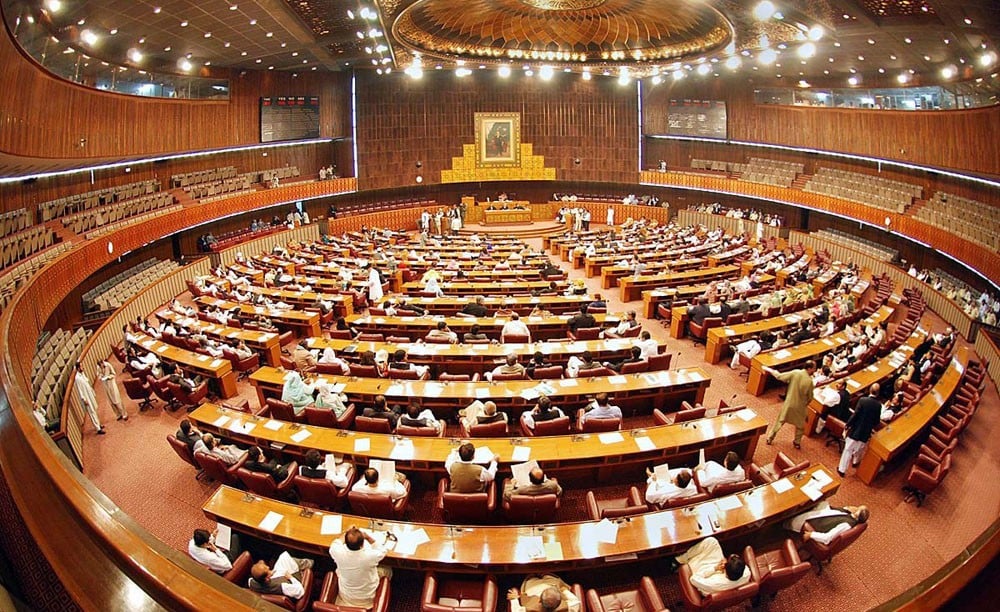
Repeated circumvention of the CCI will weaken the institutional mechanism for joint decision-making on areas that cut across provincial jurisdictions

The Council of Common Interests (CCI) is a constitutional body mandated not only to regulate relations between federation and provinces but also empowered to regulate and formulate policies in relation to the 18 subjects enumerated in the Federal Legislative List. The Article 153 of the Constitution of Pakistan further extends the jurisdiction of the CCI by assigning it an important role to "exercise supervision and control over related institutions".
The CCI has policy, supervisory, regulatory and controlling jurisdictions in a number of critical subjects which cut across provincial boundaries and involve shared decision-making and joint oversight.
The subjects include: railways; mineral, oil and natural gas; development of industries; electricity; major ports; all regulatory authorities established under a federal law; national planning and national economic coordination including planning and coordination of scientific and technological research; supervision and management of public debt; census; legal, medical and other professions; standards in institutions for higher education and research, scientific and technical institutions; and inter-provincial matters and co-ordination etc.
Introduced through the 1973 Constitution, the role, scope and outreach of the CCI were radically reformed, strengthened and streamlined through the historic 18th Constitutional Amendment. The intent of the legislatures to re-energise the CCI as a forum of participatory decision-making and re-positioning it as a constitutional instrument of contest, negotiations and consensus-building on inter-provincial conflicts and disputes was informed by the unfortunate consequences of past political squabbling between the federation and the provinces.
Background discussions with the members of the Parliamentary Committee on Constitutional Reforms (PCCR) suggest that the core purpose of remodelling the CCI was to provide an equitable, inclusive and predictable forum for all federating units to articulate their interests, demands and grievances vis-à-vis federation.
That is why the meeting of CCI was made mandatory after every 90 days ruling out the possibility of the federal government’s whims and veto in convening or not convening such an important meeting of such an important constitutional body mandated to regularly regulate subjects and jurisdictions of inter-governmental interests and counter-interests.
Provinces have also been given a room to request for a special meeting if required. It was also provided in the constitution that a separate secretariat of the CCI would be established to ensure neutrality and inclusiveness in the representation and functioning of the everyday affairs of the council. Additionally, the CCI was made responsible to present an annual report of its decisions and compliance to both houses of the Parliament.
The current CCI constituted after the 2013 general elections, however, defaults on all accounts mentioned above.
First, in almost last three years or so only six meetings of the CCI were held whereas it was required to meet twelve times in the prescribed period. The last CCI meeting was held in March 2015 and it is almost one year that no meeting has been held so far.
Last year was particularly volatile in terms of political contestation and need for consensus on a number of contentious issues involving inter-provincial interests and counter-interests which included the China Pakistan Economic Corridor (CPEC), National Action Plan (NAP) and Rangers in Sindh etc. Either all parties conferences (APCs) were held or informal forums were used for communication on these issues, but the legally-mandated body for conflict resolution on inter-governmental matters was inconsequentially circumvented.
The CPEC and NAP which have a strong inter-provincial bearing have never been taken up by the CCI and no province has demanded to invoke the constitutional forum to sort out issues for which it was created unanimously by all political parties in power (minus the PTI which boycotted the 2008 elections).
Second, the last annual report of CCI presented in both houses covered only decisions made till 2013. By now three annual reports are pending to be presented and debated in the parliament. The incumbent government has not delivered on this parliamentary requirement.
Third, the CCI secretariat is still being run on interim basis currently hosted by the Federal Ministry for Inter-Provincial Coordination (IPC) with meagre resources and having no technical support required to operationalise the constitutional jurisdictions of the CCI. Background interviews indicate that a summary was developed to establish a permanent secretariat by converting the current IPC Ministry into a permanent CCI secretariat. However, no progress to this effect has been made so far.
It would be advisable to establish a permanent secretariat of the CCI but not as another ‘grazing land’ for federal bureaucracy; rather its structures should be designed at the very outset ensuring equitable provincial representation, cost-sharing by provinces and rotational chair among provinces.
Fourth and finally, the political vision and rationale of the CCI seems to have been defeated as it has failed at least in last three years to provide an opportunity for an informed and evidence-based debate leading to inter-governmental consensus and conflict resolution on key areas of contest.
Resultantly, the PMLN-led federation is being seen to leverage its influence and resources to benefit the province which is its electoral base at the cost of exclusion of smaller federating units (particularly Sindh and Khyber Pakhtunkhwa) run by rival political parties.
Analysts have apprehended that repeated circumvention of CCI would weaken the institutional mechanism for joint decision-making in areas that cut across provincial jurisdictions.